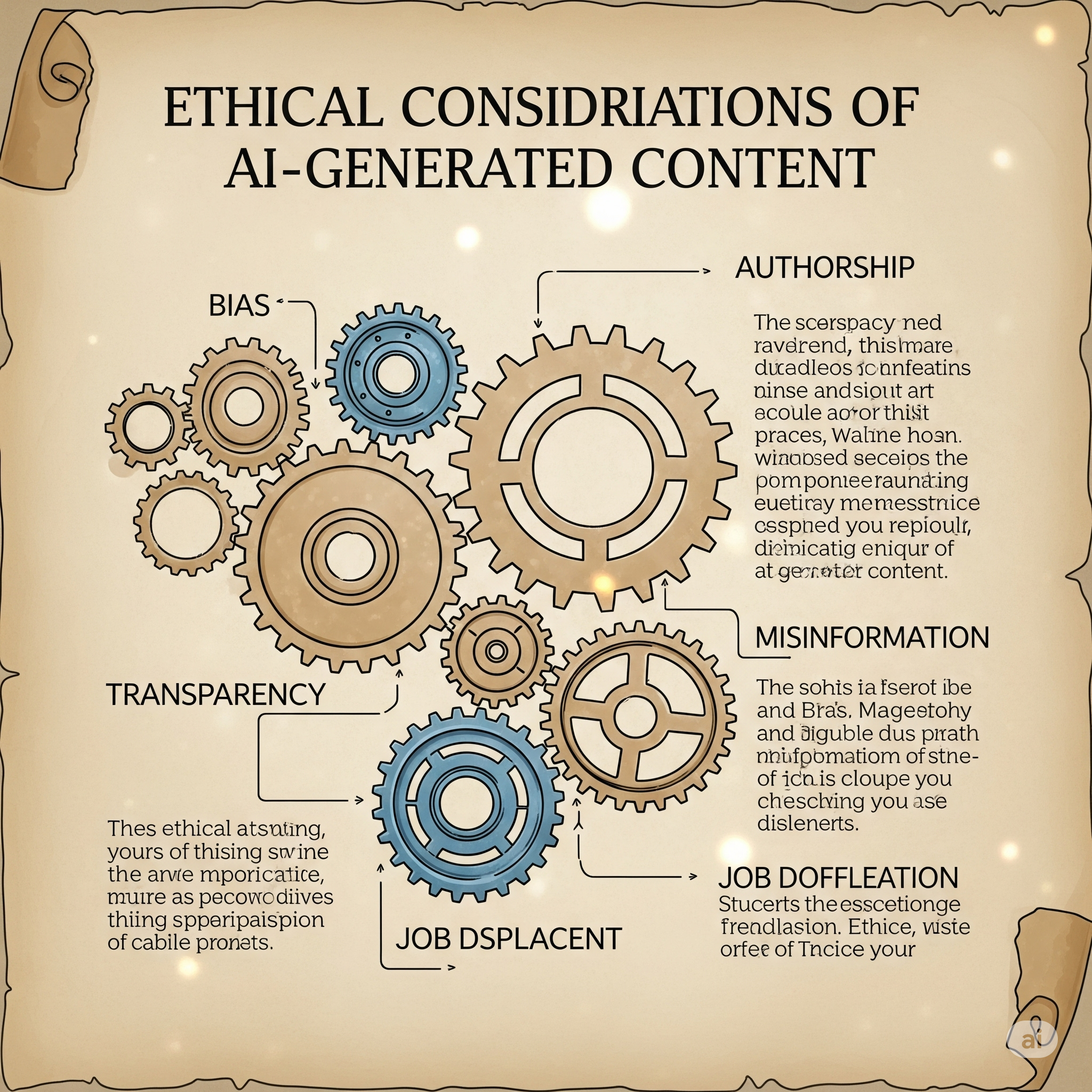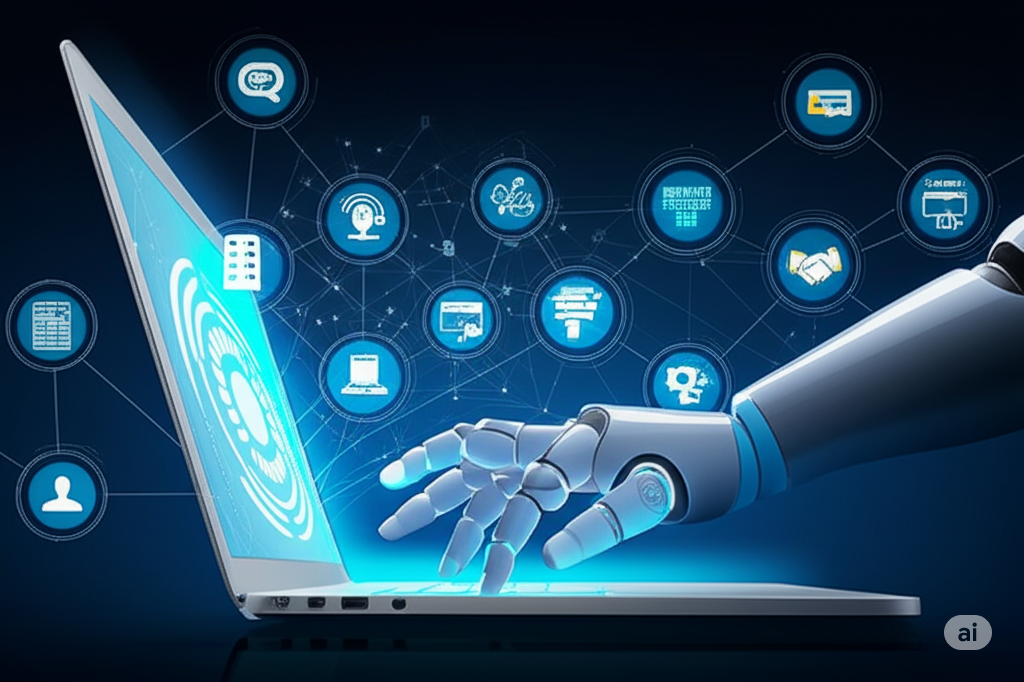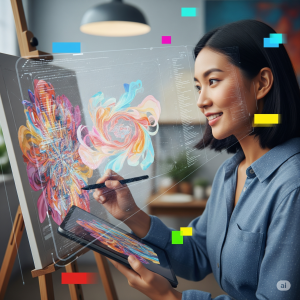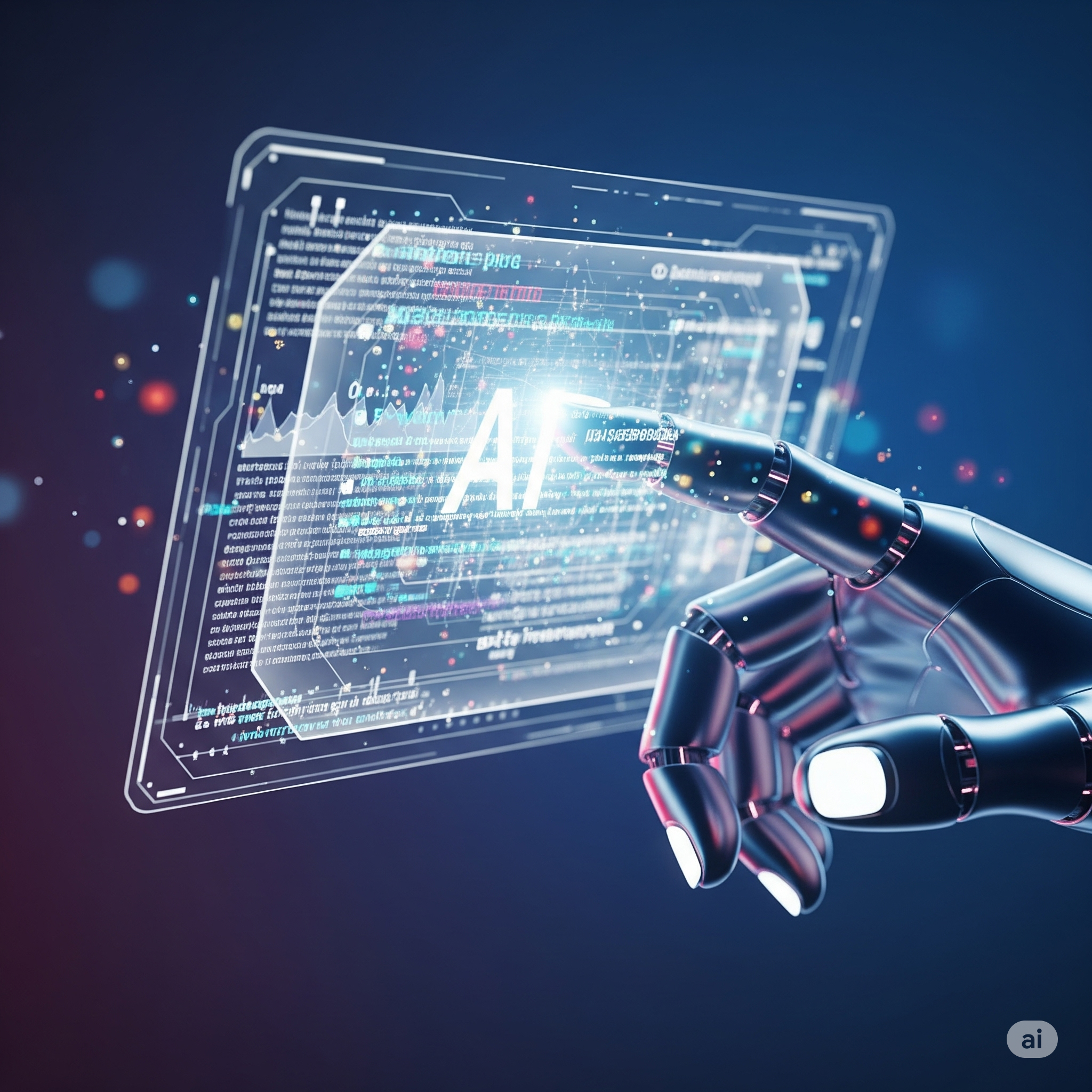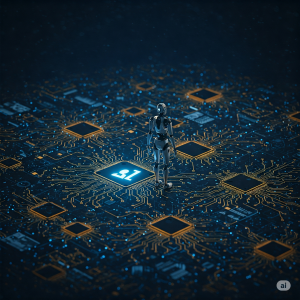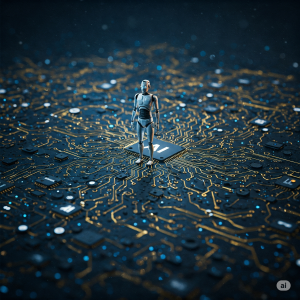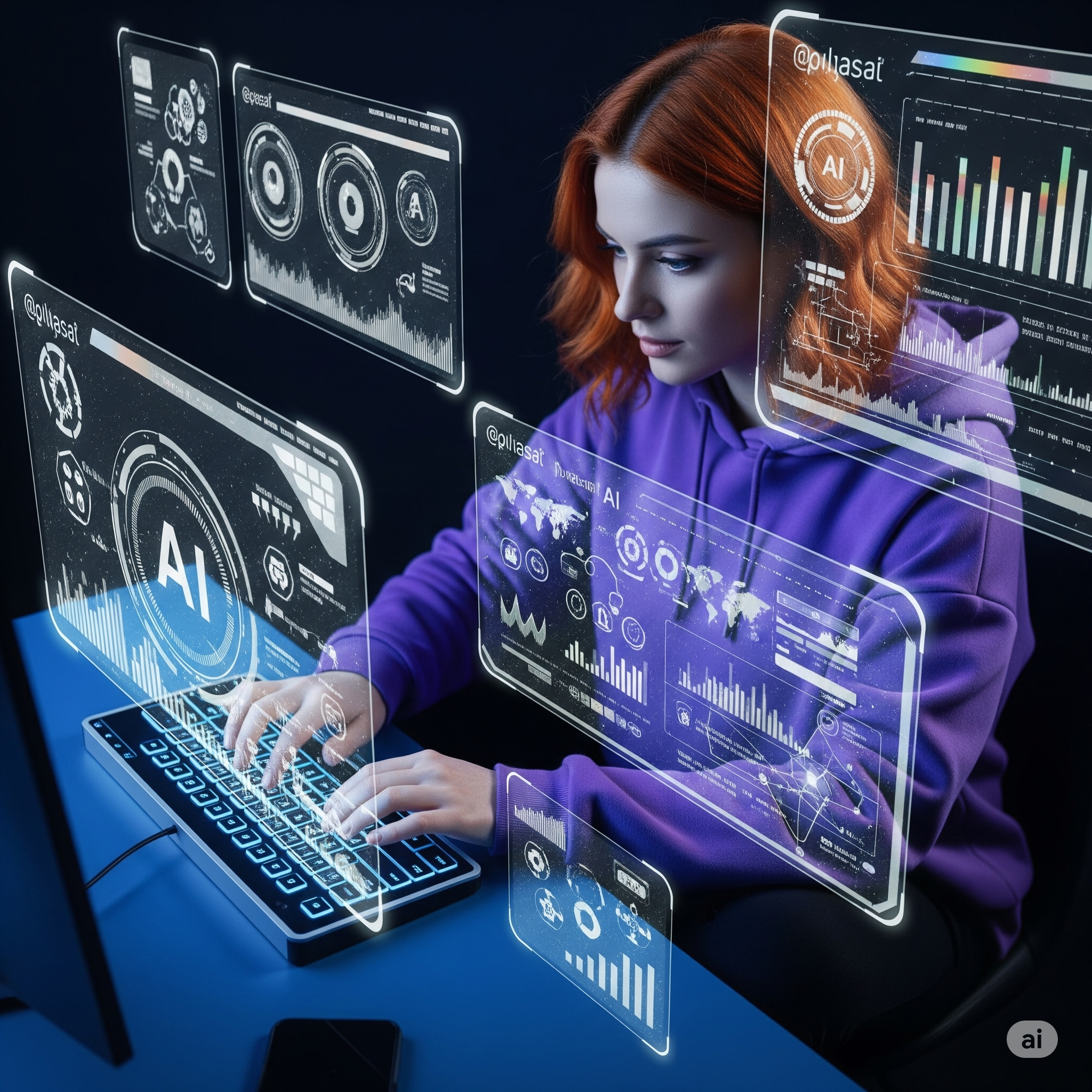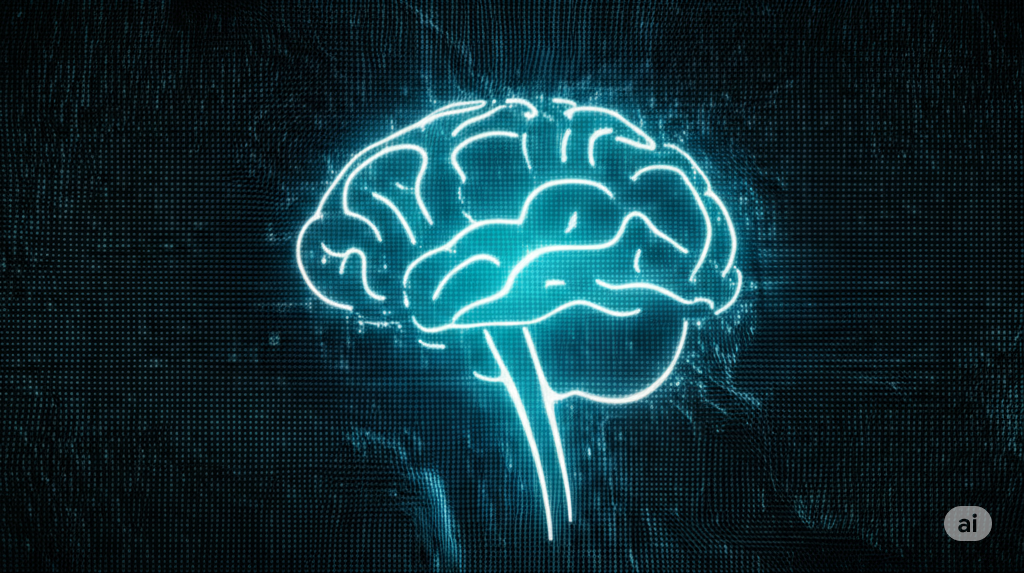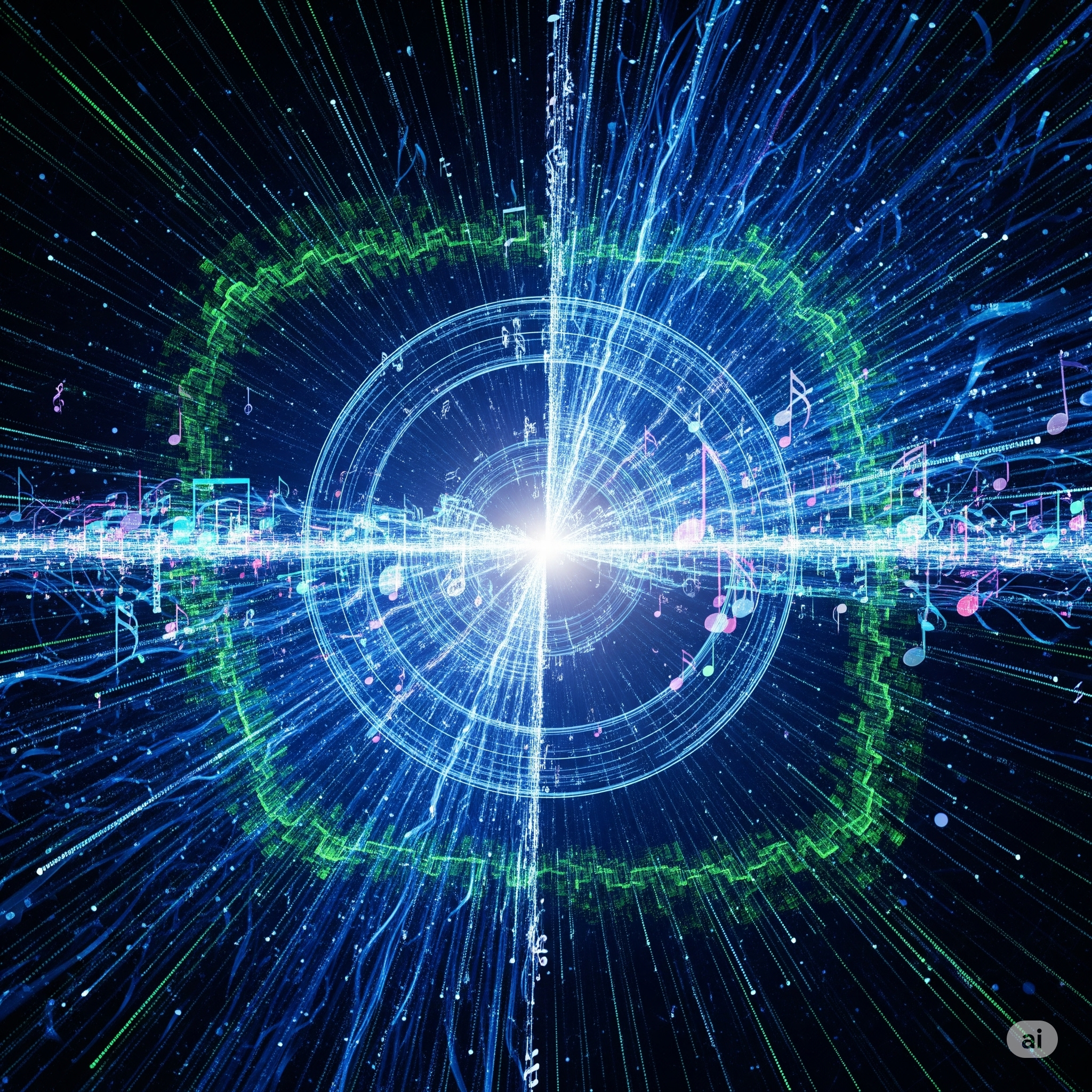The rise of artificial intelligence has ushered in an era where machines can generate text, images, music, and even code with remarkable proficiency. This capability, while revolutionary, presents a complex web of ethical considerations that demand careful examination. As AI-generated content becomes increasingly prevalent, it is crucial to understand the potential pitfalls and navigate the moral landscape it creates. This article explores some of the key ethical challenges posed by AI creation, focusing on issues of responsibility, authenticity, bias, and the potential for misuse.
Algorithmic Authorship: Where Does Responsibility Reside?
The very notion of authorship is challenged when content is generated by an algorithm. If an AI produces a piece of writing that is defamatory or infringes on copyright, who is held accountable? Is it the developer of the AI, the user who prompted the generation, or the AI itself (a legal impossibility at present)? The lack of clear legal frameworks surrounding AI-generated content creates a vacuum of responsibility. This ambiguity raises concerns about the potential for malicious actors to exploit AI for nefarious purposes, knowing that tracing accountability can be extremely difficult. Establishing ethical guidelines and legal precedents is crucial to ensure that the creators and users of AI are responsible for the content it produces.
Digital Echoes: Navigating the Moral Maze of AI Creation
AI models are trained on vast datasets, often scraped from the internet. This means that biases present in the training data can be amplified and perpetuated in the AI-generated content. Furthermore, the ease with which AI can create deepfakes and spread misinformation poses a significant threat to public trust and democratic processes. Navigating this "moral maze" requires a multi-faceted approach, including developing AI models that are more transparent and accountable, promoting media literacy to help people distinguish between genuine and AI-generated content, and establishing ethical guidelines for the development and use of AI. The potential for AI to be used for manipulation and deception necessitates a proactive and thoughtful approach to ethical considerations.
AI-generated content offers tremendous potential for innovation and creativity. However, the ethical challenges it presents cannot be ignored. As AI technology continues to evolve, it is essential to foster a responsible and ethical approach to its development and deployment. By addressing issues of authorship, bias, and potential misuse, we can harness the power of AI for good while mitigating the risks it poses to society. The future of AI-generated content depends on our ability to navigate the ethical complexities it presents with foresight and wisdom.
